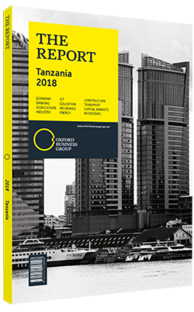Tanzania's special economic zones continue to attract regional investors
The government of Tanzania hopes to encourage industrialisation and investment in labour-intensive manufacturing through its export processing zone (EPZ) and special economic zone (SEZ) schemes, which were launched in 2002 and 2006, respectively. Managed by the Export Processing Zones Authority (EPZA), the EPZ scheme promotes investment in export-oriented manufacturing activities, while the SEZ programme is broader and more inclusive and promotes sector-specific investment with an emphasis on agriculture, trade, tourism, mining and forestry.
Although SEZs offer a host of fiscal and non-fiscal incentives to prospective investors, SEZ development remains constrained by a number of structural and geographic challenges, making infrastructure and human resource development critical to future growth.
Setting the Stage
SEZ development has progressed steadily over the past 15 years. In a 2016 study, “The Role and Effectiveness of SEZs in Tanzania”, the UN University’s World Institute for Development Economics Research (WIDER) reported that out of 140 registered companies operating in SEZs, 45% were local and 55% foreign, with SEZ employment standing at 44,227. With a major infrastructure development programme under way, 46% of investment comes from engineering ventures. Agro-processing was second with 43%, followed by mineral processing and meat processing, with 8% and 3%, respectively, according to WIDER. In August 2016 the government identified six new areas slated for SEZ development, including the Coast, Morogoro, Iringa, Njombe, Mbeya and Songwe Regions, while the country’s Five-Year Development Plan II 2016/17-2020/21 prioritises SEZ development in Bagamoyo, Mtwara, Kigoma, Tanga, Ruvuma, Dodoma and Manyoni, and the Kurasini Logistic Centre.
Licences
Both EPZ and SEZ investors are required to obtain a licence from the EPZA, which offers three categories: developers’ licences for companies building new zones and supporting infrastructure, investors’ licences for companies operating within an EPZ/SEZ, and non-core business licences for service providers.
Firms investing in EPZs must be launching new projects and at least 80% of goods produced therein must be exported, while annual export turnover should not be less than $500,000 for foreign investors and $100,000 for local investors. SEZ firms must be new investments, with a minimum paid-up capital of $100,000 for local investors and $500,000 for foreign investors. The investment project must also be located within a designated SEZ area.
SEZ Benefits
SEZ and EPZ investors benefit from incentives, including tax and duty exemptions for machinery, heavy-duty vehicles and any other capital goods, as well as a 10-year corporate income tax holiday, a 10-year withholding tax holiday, and remissions of Customs duties, value-added tax (VAT) and any other taxes on the importation of ambulances, fire-fighting equipment, up to two employee buses and one administrative vehicle. Export-oriented EPZs are also eligible for VAT exemptions on utility and wharfage charges, and unconditional transferability of net profits, loan services payments, technology transfer royalties and fees, and proceeds of any sale or liquidation of the business. Worker documentation and licence inspections are also done on site, reducing transaction costs.
SEZ Challenges
For its SEZ study, WIDER reported that it originally hoped to sample 50 firms from a list of 147 operating in 14 SEZs, including one in Dar es Salaam. However, the institute noted that many firms on the list of 147 had not yet begun operations, had closed, or were only using their SEZ space for storage purposes. Companies that had ceased operations attributed the decision to prohibitively expensive export costs, conflicting export policies and a downturn in sales.
In the end WIDER was only able to survey 24 firms and 379 employees, reporting that lack of access to basic utilities and infrastructure continued to delay the opening of other companies it had planned to survey.
You have reached the limit of premium articles you can view for free.
Choose from the options below to purchase print or digital editions of our Reports. You can also purchase a website subscription giving you unlimited access to all of our Reports online for 12 months.
If you have already purchased this Report or have a website subscription, please login to continue.

